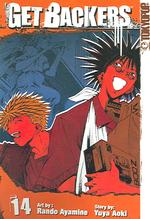基本説明
New in paperback. Hardcover was published in 2007. Exploring the creativity of mind through children's language: how the tiniest utterances can illustrate the simple but abstract principles behind modern grammar - and reveal the innate structures of the mind. "Lucid and engaging, The Prism of Grammar leads the reader from striking observations and experiments with children that anyone can carry out to subtle and intricate issues that concern every parent―in fact, anyone seeking to understand who we are and what we should be." ― Noam Chomsky
Full Description
Exploring the creativity of mind through children's languagetiniest utterances can illustrate the simple but abstract principles behind modern grammar-and reveal the innate structures of the mind.Every sentence we hear is instantly analyzed by an inner grammar; just as a prism refracts a beam of light, grammar divides a stream of sound, linking diverse strings of information to different domains of mind-memory, vision, emotions, intentions. In The Prism of Grammar, Tom Roeper brings the abstract principles behind modern grammar to life by exploring the astonishing intricacies of child language. Adult expressions provide endless puzzles for the child to solve. The individual child's solutions ("Don't uncomfortable the cat" is one example) may amuse adults but they also reveal the complexity of language and the challenges of mastering it. The tiniest utterances, says Roeper, reflect the whole mind and engage the child's free will and sense of dignity. He offers numerous and novel "explorations"-many at the cutting edge of current work-that anyone can try, even in conversation around the dinner table. They elicit how the child confronts "recursion"-the heartbeat of grammar-through endless possessives ("John's mother's friend's car"), mysterious plurals, contradictory adjectives, the marvels of ellipsis, and the deep obscurity of reference ("there it is, right here"). They are not tests of skill; they are tools for discovery and delight, not diagnosis. Each chapter on acquisition begins with a commonsense look at how structures work-moving from the simple to the complex-and then turns to the literary and human dimensions of grammar. One important human dimension is the role of dialect in society and in the lives of children. Roeper devotes three chapters to the structure of African-American English and the challenge of responding to linguistic prejudice. Written in a lively style, accessible and gently provocative, The Prism of Grammar is for parents and teachers as well as students-for everyone who wants to understand how children gain and use language-and anyone interested in the social, philosophical, and ethical implications of how we see the growing mind emerge.








